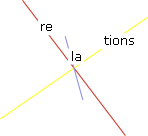|
|
by Tilman Rammstedt
In the end, I did photograph the West billboard. Although I’d decided not to do exactly that—after all, I realized that billboards in eastern Europe for West cigarettes were no better suited as subjects for photographs than the Eiffel Tower, the Statue of Liberty, or blue window frames in Greece. But, despite it all, it was just too tempting, at the end of the trip, to document something clear finally, something that patently conformed to my expectations.
Those posters were also virtually the first thing I saw in Kosovo. Already on the way from the airport, not even half an hour after my arrival, they were displayed, huge and prominent, every couple of kilometers, between the half-finished houses with no plaster, sometimes without a roof or even windows, between the improvised gas stations and repair shops, between the scattered pizzerias, the cemeteries, and blinking monuments to the UÇK—Ushtria Çlirimtare e Kosovës, the Kosovo Liberation Army. The billboards showed a Formula 1 car just before the race begins, and beneath it, in English: "Everything starts now."
So here it goes, I thought, on the way from the airport, here something is finally starting; it’s just about to begin, just a few seconds, and then the car can join the race, then the nation can ride along, time itself, lap after lap, only a little left to wait, waiting for the start, waiting for the state.
Not even half an hour later I had confirmation that my ideas were right. Reassured, I made a note, the first of many intended to describe the new awakening, the impatience, a feeling of being on the starting blocks which I also shared, looking out through the taxi window with wide-open eyes. Everything was an impression, a first impression, a formative impression, everything had to be noted down—and two weeks later my notebook was indeed filled with all the impressions, quotations, and helpless attempts at assessment. As the pages filled up it became clearer that once again the idea was unfounded, and everything was more complicated, that the promise of the West billboards was merely empty. But I couldn’t know that after just half an hour in Kosovo; at best I could only sense it. The half-finished houses did not look as if they would be finished anytime soon. There was no construction work going on anyway; missing windows were replaced by tarps; if a roof was missing, then the top floor would be empty but the rest of the building occupied. Laundry hung on unplastered balconies; there were no stores on the ground floor. These were no temporary measures; this had long since been the state of affairs.
The more I saw "Everything starts now" in the two weeks that followed, the less I read it as a promise than as a challenge or a mantra that, repeated often enough, would someday be accepted as truth. Suddenly it didn’t seem to be addressed to Kosovar consumers at all but to the foreign diplomat, the potential investor, or just the visitor, and then the slogan was a seductive interpretative aid for everything you saw but didn’t understand, because inside you knew that everything that had been painted on the outside quickly lost its validity. […]
Tilman Rammstedt was born in Bielefeld in 1975 and lives as a writer in Berlin. His fiction debut Erledigungen vor der Feier was published in 2003, followed by his first novel in 2005, Wir bleiben in der Nähe. With the band Fön he recorded the album Wir haben Zeit in 2004.
The present text is an excerpt from Tilman Rammstedt’s contribution to Leap into the City.
